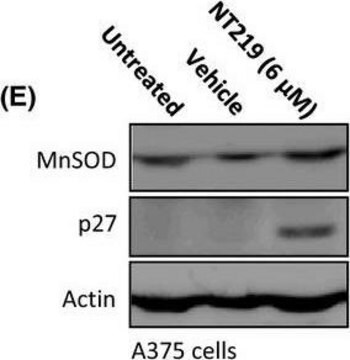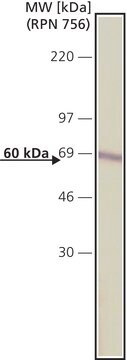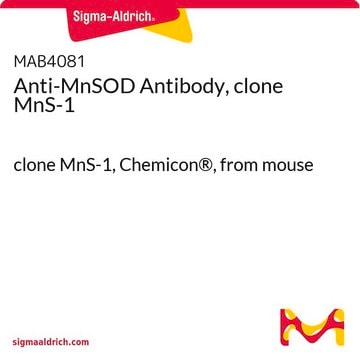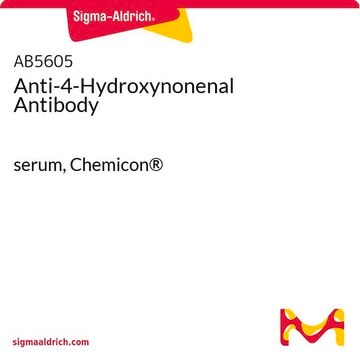S5069
Anti-Superoxide Dismutase (MnSOD) (DD-17) antibody produced in rabbit

affinity isolated antibody, buffered aqueous solution
Synonym(s):
Anti-IPO-B, Anti-Indophenoloxidase B, Anti-MNSOD, Anti-Manganese Dependent SOD, Anti-Manganese Superoxide Dismutase 2, Anti-Mitochodrial SOD, Anti-Mn-SOD, Anti-SOD2, Anti-Superoxide Dismutase 2
About This Item
Recommended Products
biological source
rabbit
conjugate
unconjugated
antibody form
affinity isolated antibody
antibody product type
primary antibodies
clone
polyclonal
form
buffered aqueous solution
mol wt
antigen ~24 kDa
species reactivity
rat, human
enhanced validation
independent
Learn more about Antibody Enhanced Validation
technique(s)
immunohistochemistry (formalin-fixed, paraffin-embedded sections): 10-20 μg/mL using biotin/ExtraAvidin®-peroxidase staining of human heart sections
indirect immunofluorescence: 10-20 μg/mL using methanol-acetone-fixed rat NRK cells
western blot: 1-2 μg/mL using human HeLa mitochondria extract and a chemiluminescent detection reagent
western blot: 2-4 μg/mL using whole extract of rat brain and a chemiluminescent detection reagent
UniProt accession no.
shipped in
dry ice
storage temp.
−20°C
target post-translational modification
unmodified
Gene Information
human ... SOD2(6648)
rat ... Sod2(24787)
Related Categories
General description
Immunogen
Application
Biochem/physiol Actions
Physical form
Legal Information
Disclaimer
Not finding the right product?
Try our Product Selector Tool.
related product
Storage Class Code
10 - Combustible liquids
WGK
nwg
Flash Point(F)
Not applicable
Flash Point(C)
Not applicable
Certificates of Analysis (COA)
Search for Certificates of Analysis (COA) by entering the products Lot/Batch Number. Lot and Batch Numbers can be found on a product’s label following the words ‘Lot’ or ‘Batch’.
Already Own This Product?
Find documentation for the products that you have recently purchased in the Document Library.
Our team of scientists has experience in all areas of research including Life Science, Material Science, Chemical Synthesis, Chromatography, Analytical and many others.
Contact Technical Service







